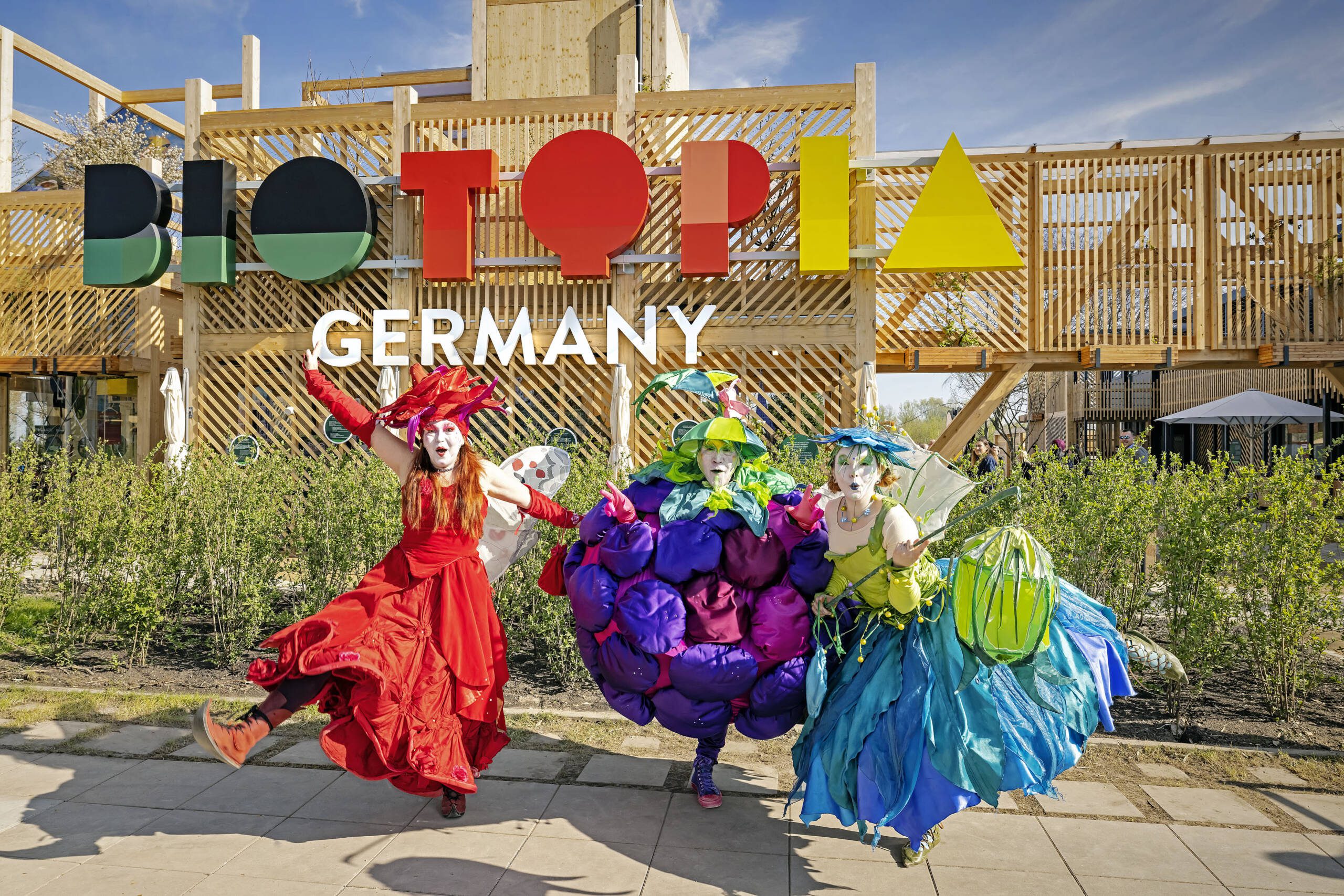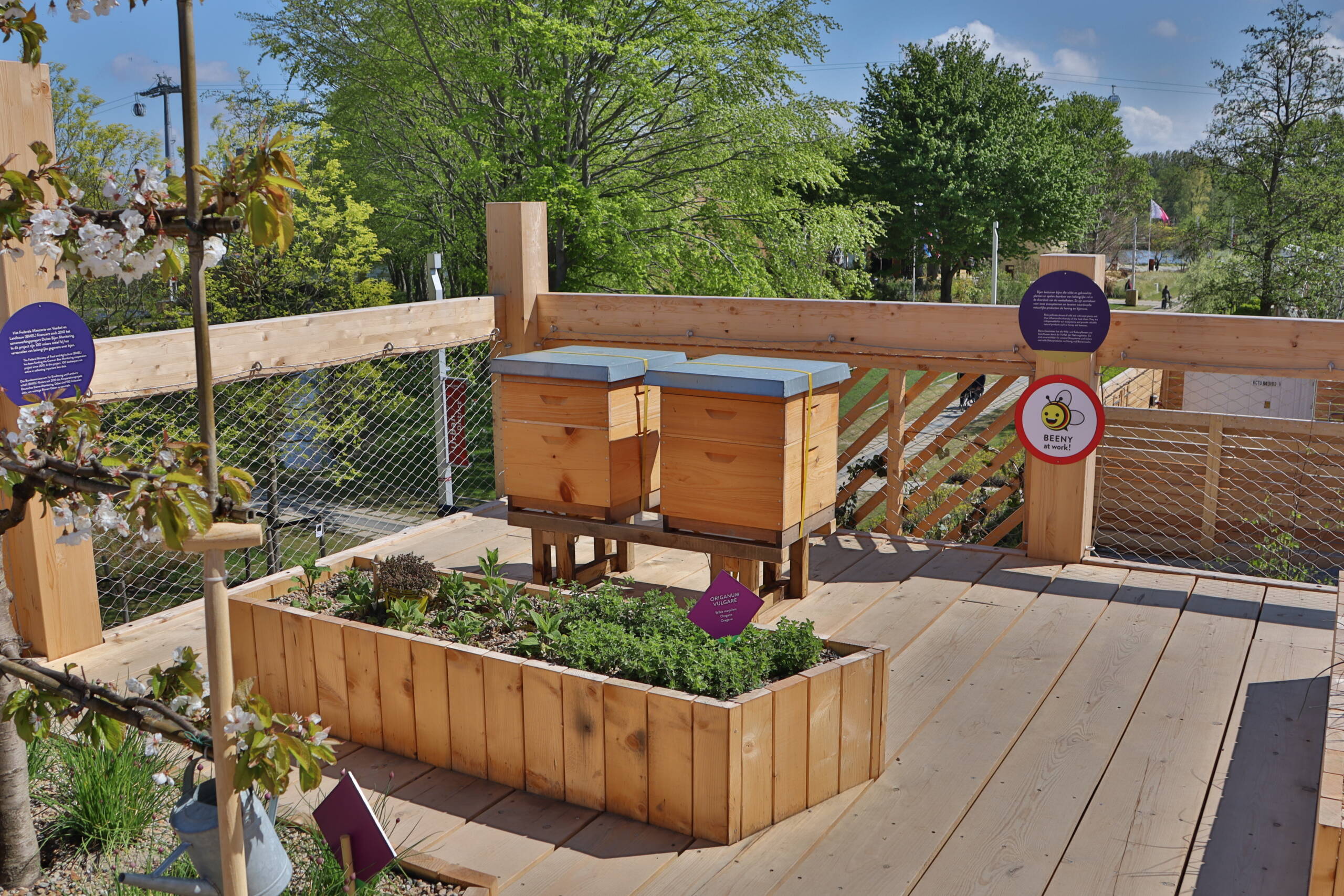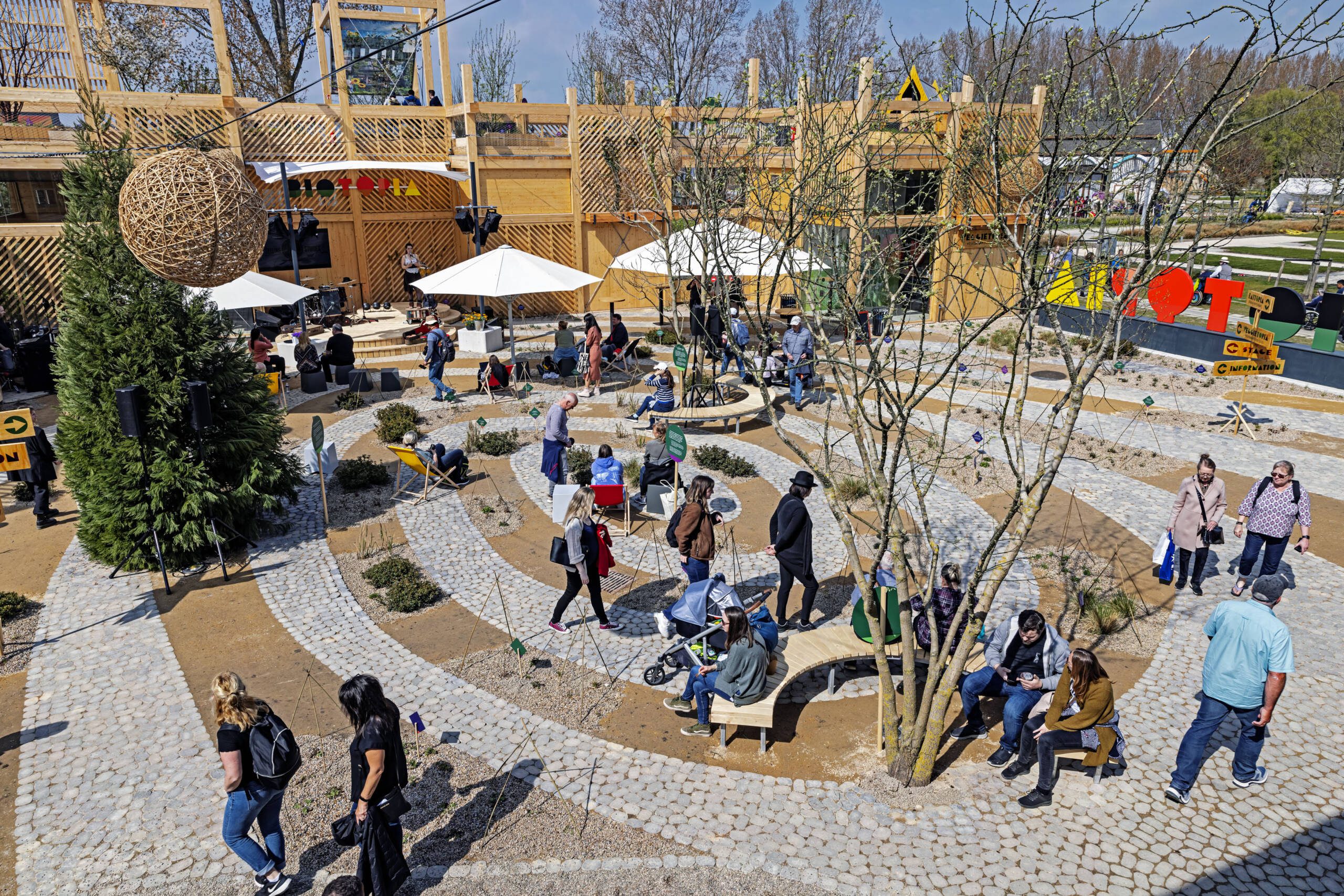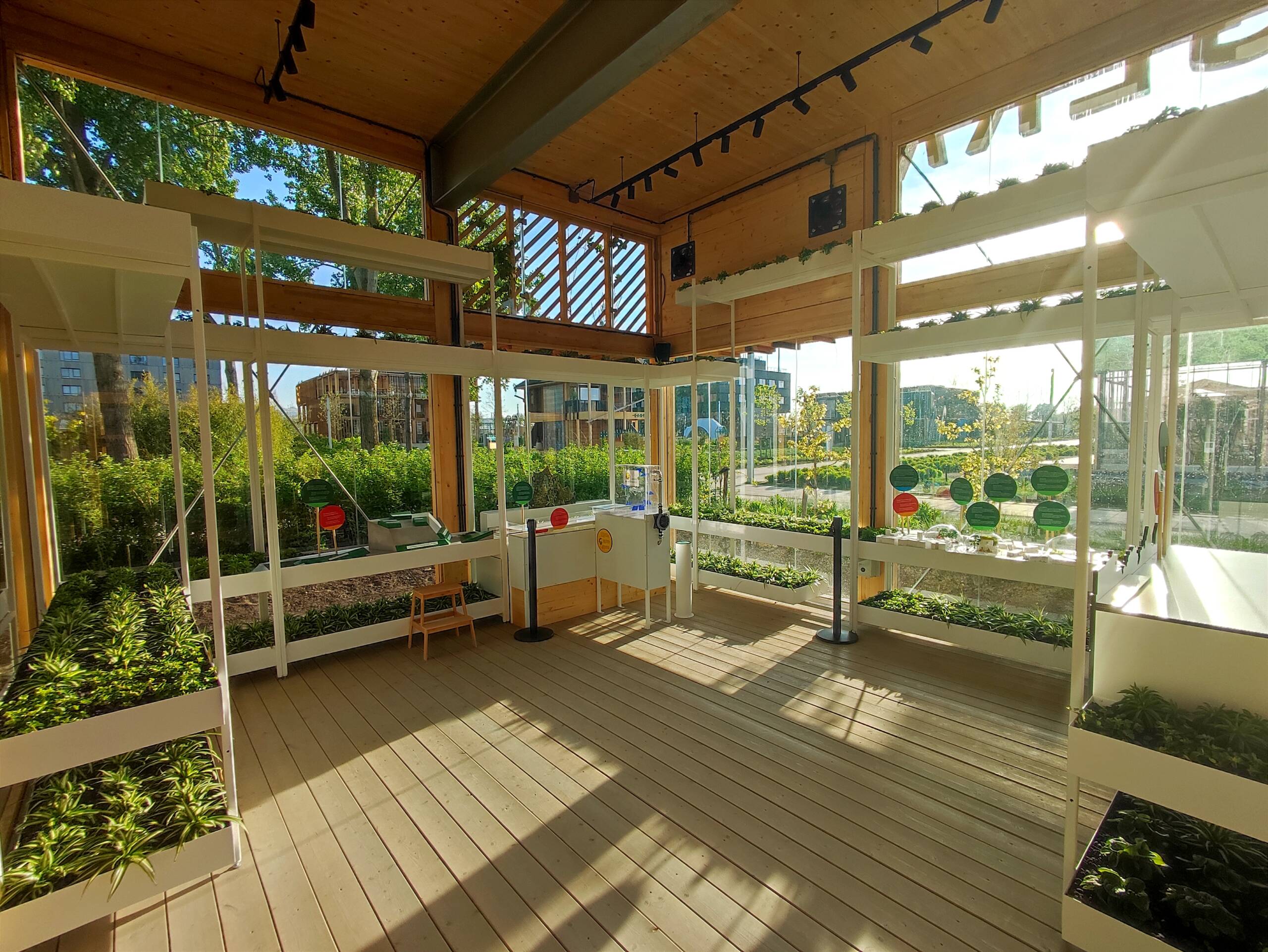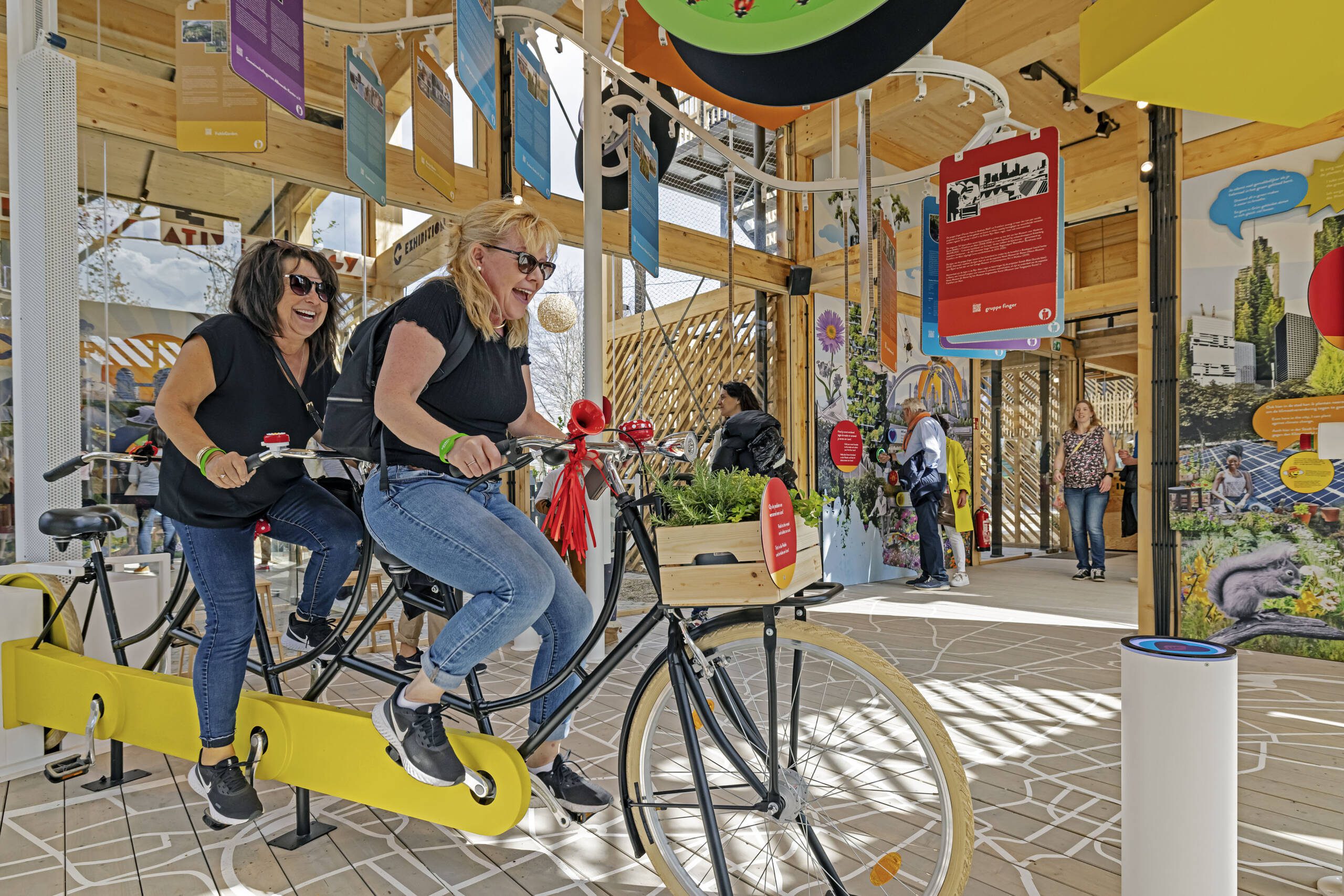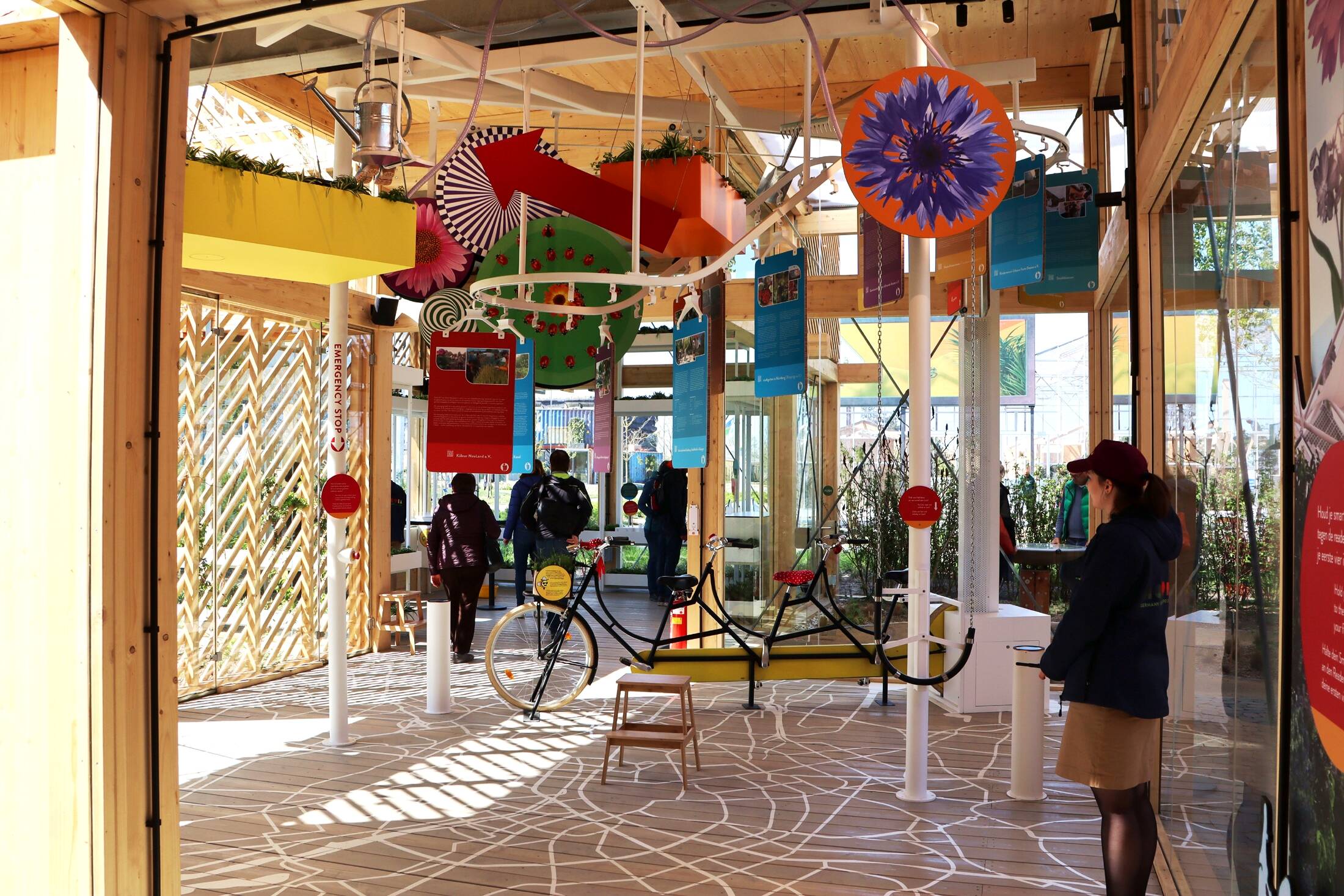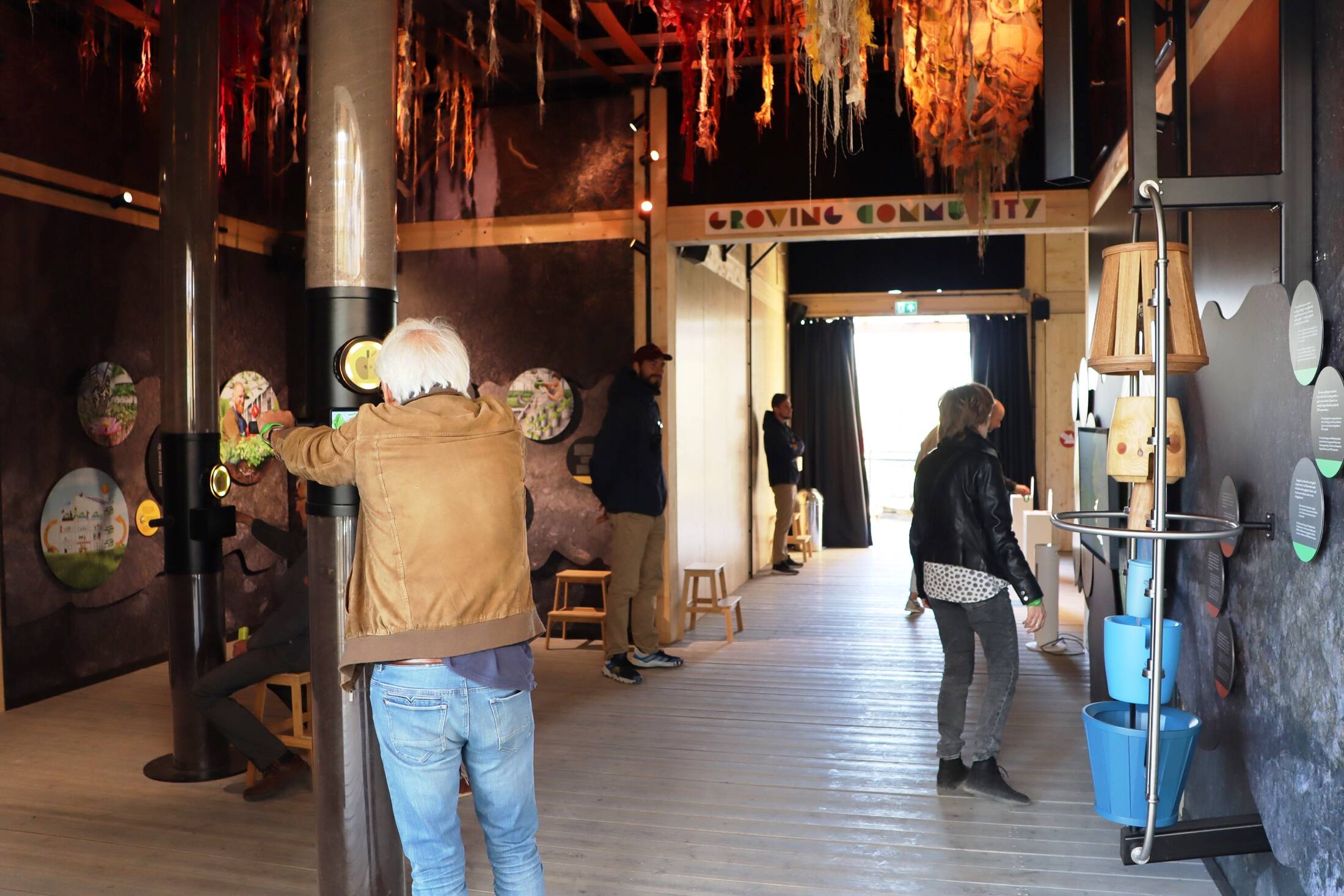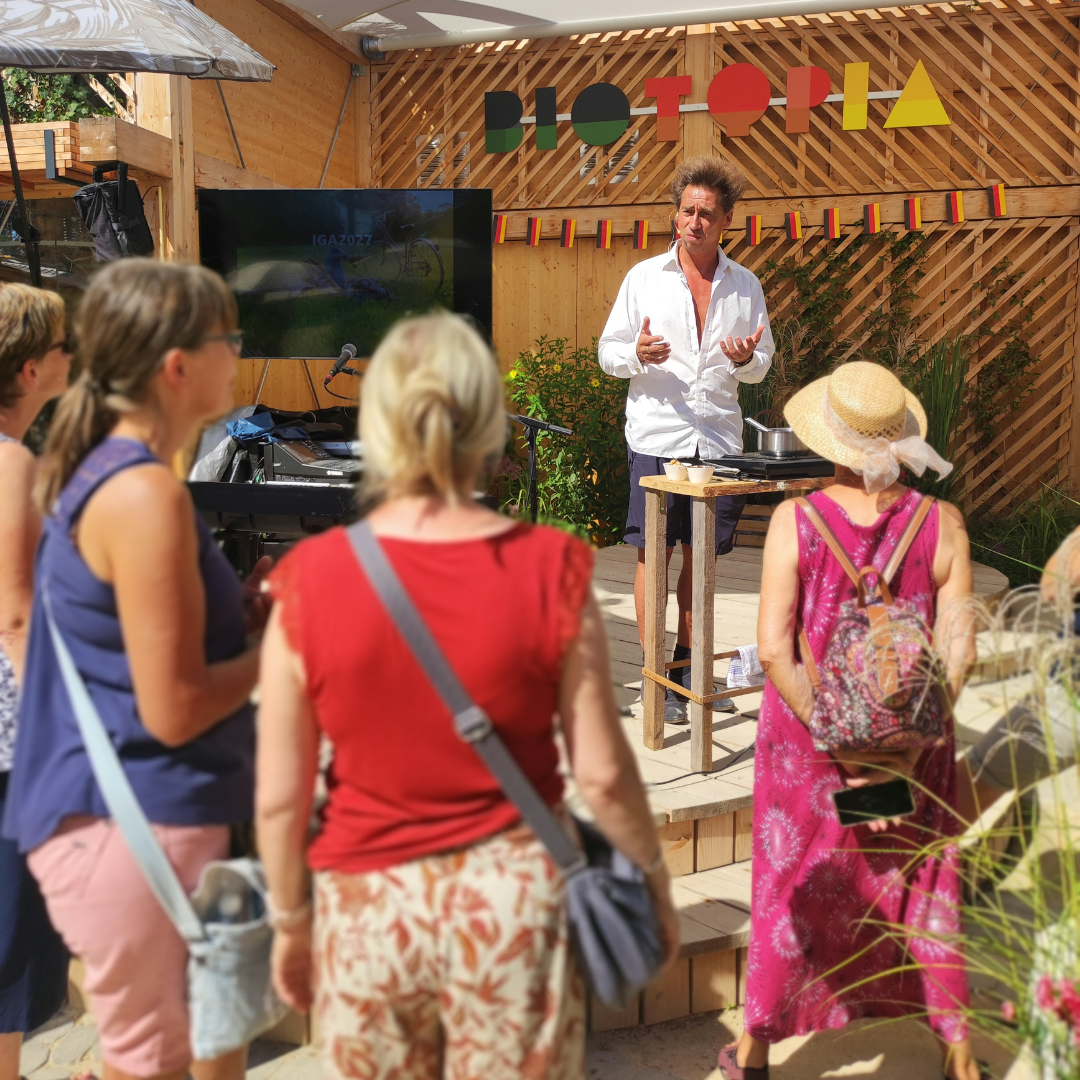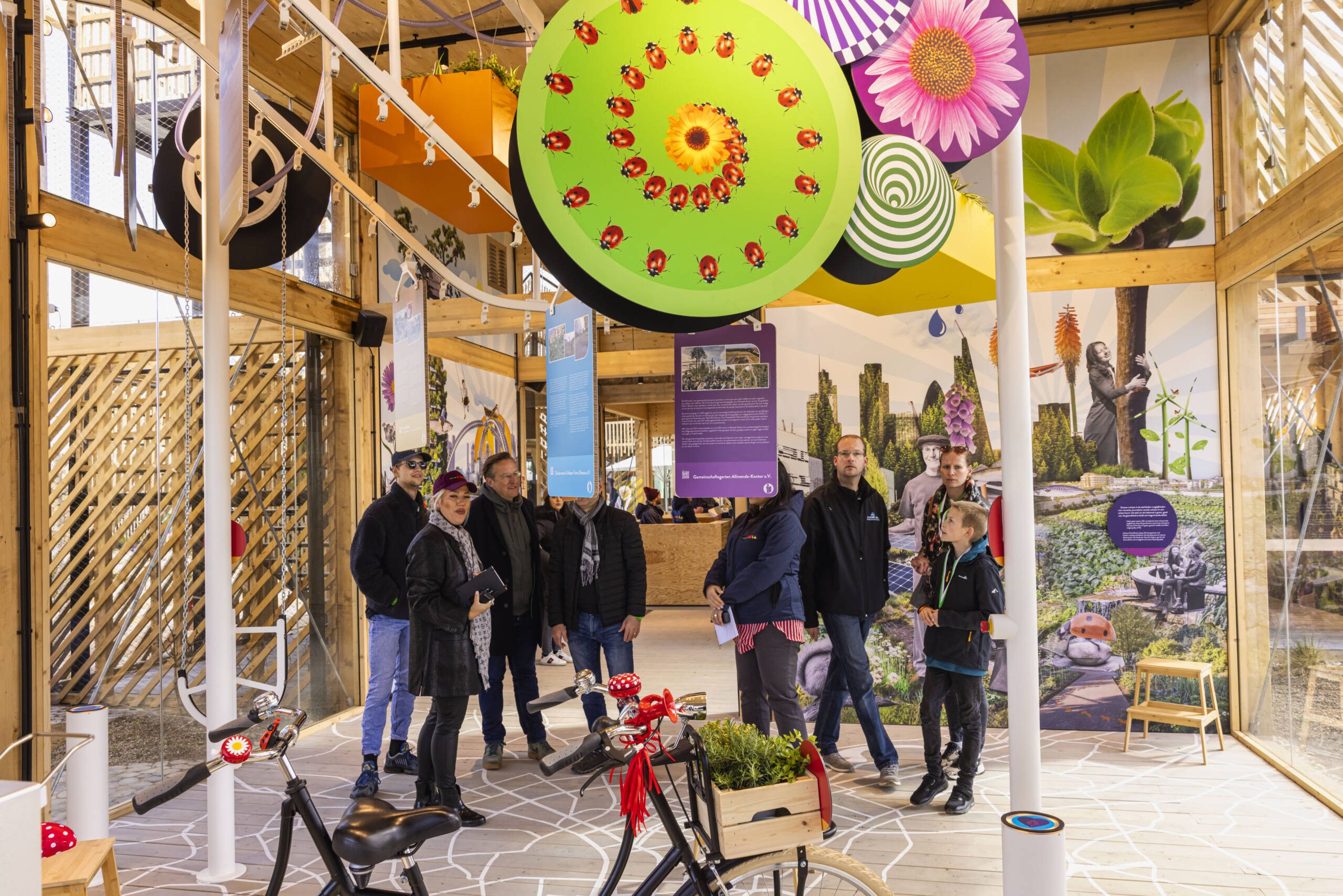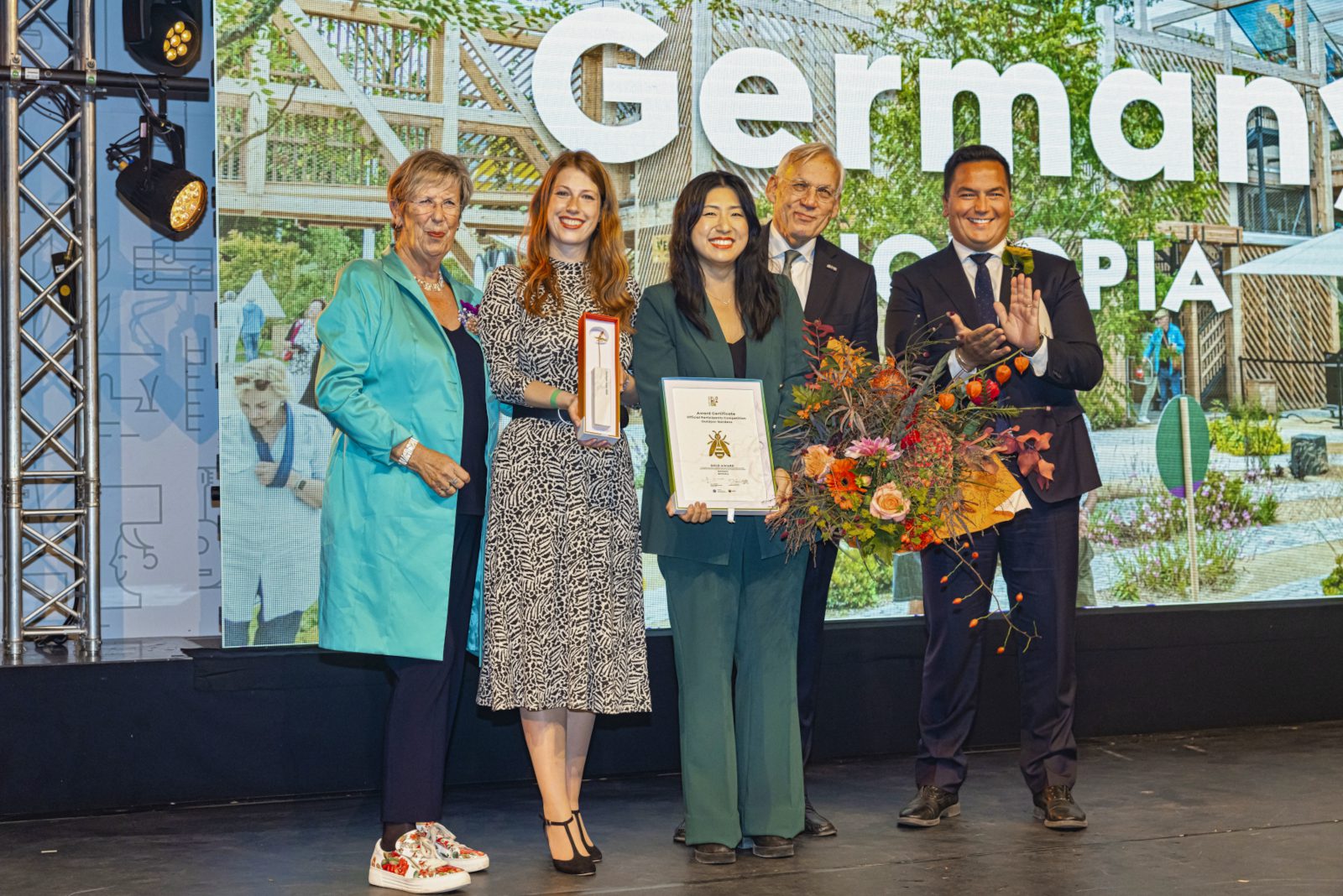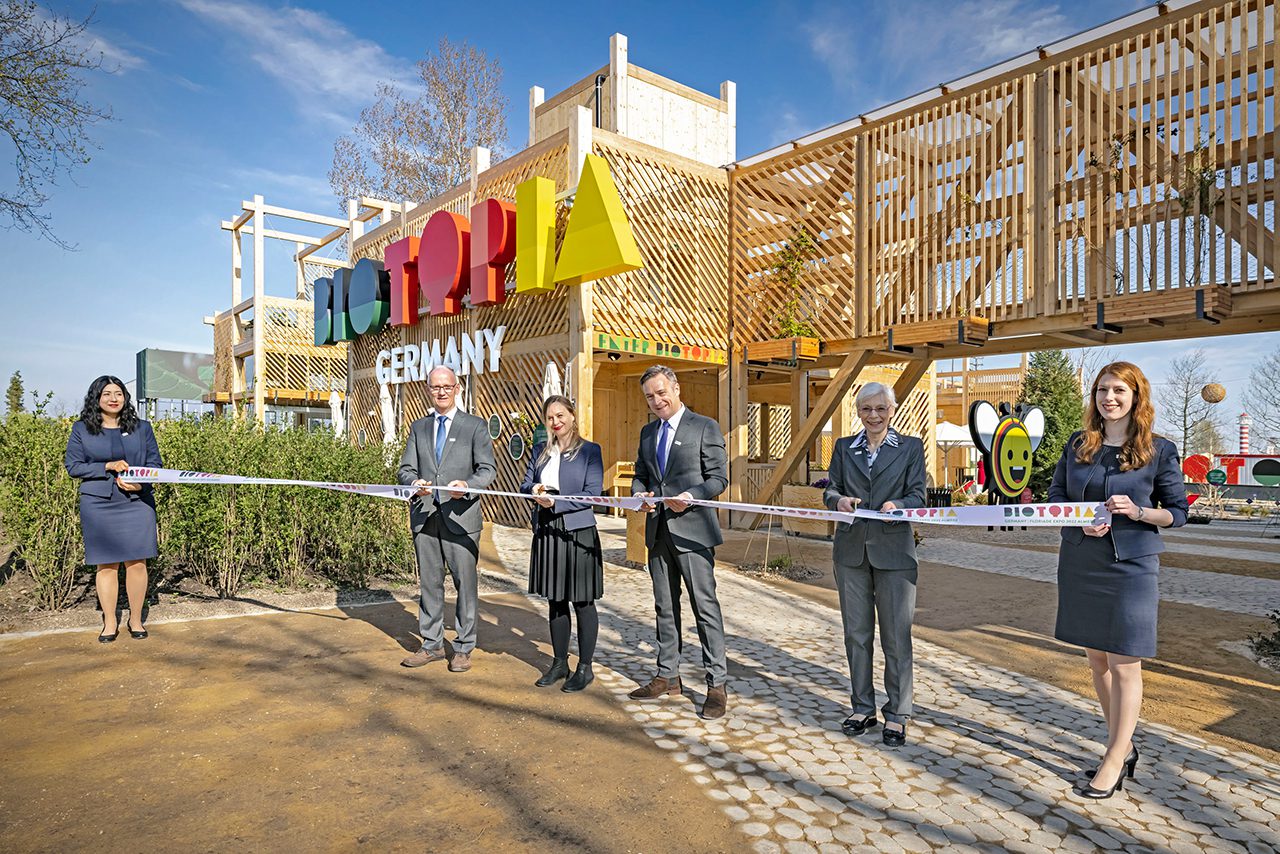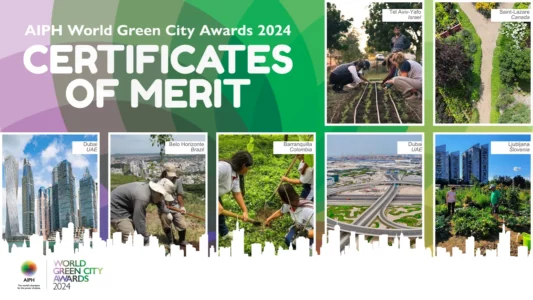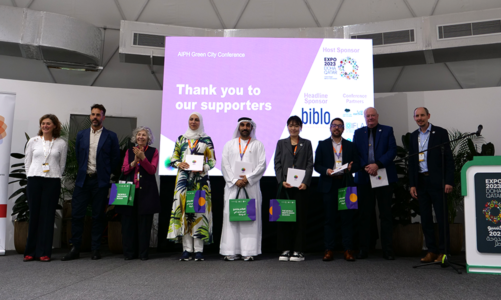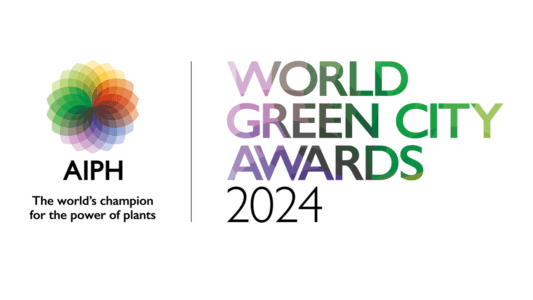Building on a sustainable future
Floriade Expo 2022 focal point was on a better quality of life, especially regarding climate change, as more people worldwide live in megacities. Germany’s pavilion at this AIPH-approved World Horticultural Expo in Almere-Amsterdam aimed to show that living in a green city is possible.
BIOTOPIA – Growing Community was the theme Germany chose to show possible ways towards a sustainable and liveable urban future.
Plants are one of the few practical and sustainable ways of generating a pleasant climate for people in cities — the biotope architect and modular construction showcased how the city can give nature space and redesign open space.
Visitors learnt about initiatives, visions, and innovation in the German Garden, which helped promote dialogic interaction and participation in a permanently growing and evolving space – the experience felt easy-going, radiated happiness and was a tremendous amount of fun.
Thirty-five staff members manned the German pavilion making BIOTOPIA a place where everyone could actively learn how to create future green cities. During the 177 days of the Floriade, the German Pavilion hosted 600,000 guests. Through qualitative visitor surveys, they received positive feedback from visitors who all felt involved, educated, and entertained during their visit to the German Garden.
In the closing ceremony, Germany’s BIOTOPIA was awarded Floriade Expo 2022 Gold Prize in the Outdoor Garden category. In praising them, AIPH President Leonardo Capitanio said: “Germany gave visitors an immersive experience in understanding what a sustainable future can look like and the role we can all play. The rooftop gardens showed new ways of living that integrate people and nature. The team maintained the highest quality until the end, and they deserve the highest praise for their achievements.”
The German Garden was under the responsibility of the Federal Ministry of Food and Agriculture (BMEL). The Expo-experienced Hamburg Messe und Congress GmbH (HMC) was commissioned by the BMEL to plan, organise and manage the German Garden. Laumann/Scheßl/Weismüller Architektur + Baumanagement GmbH (LSW) advised the BMEL as the project’s construction consultant. The consortium “ARGE Deutscher Garten Floriade Expo 2022” – comprising the creative agency insglück Gesellschaft für Markeninszenierung mbH, the architect gtp2 Architekten and the landscape architect studio grüngrau Landschaftsarchitektur GmbH – was responsible for conceiving, designing, and realising the German Garden.
Germany’s pavilion and associated outdoor area at Floriade Expo 2022 was intended to demonstrate that bringing nature and nature-related technologies together can significantly increase city dwellers’ quality of life. Sustainability was also a priority in the construction of BIOTOPIA.
In the beginning, the following sustainability goals for the German Garden were defined:
• reduce the CO2 footprint
• design and material selection for recycling
• material selection from the spectrum of renewable raw materials
• material selection according to Cradle-to-Cradle (C2C) standards and certifications
• efficient and sustainable use of raw materials
• waste management
• sourcing wood-based materials from sustainable forestry
Minimum requirements for materials:
• chipboard with formaldehyde
• low-formaldehyde glues
• water-based paints
• recyclable materials
• materials with high recycling content
• PVC-free plastics
The aim was also to ensure that all products are free of:
• Carcinogenic, mutagenic and reprotoxic chemicals substances
• halogenated solvents in plastics
• chlorinated hydrocarbons
• heavy metal pigments
• materials with azo dyes
• coatings with biocidal action (e.g., wood preservatives, pesticides)
BIOTOPIA was constructed on a plot of 1,974 m² with an exhibition area of 620 m². When selecting the materials and executing companies, it was ensured that CO2 was minimised. The organisers paid huge attention to regionality to minimise transport routes. Low-emission machines and means of transport were used for the construction work and the transportation of materials. The construction time was kept as short as possible using devices with particle filters specially tailored to the requirements of the building, which had a positive effect on noise and air pollution during construction.
The German Garden’s architecture was a modular structure made from wood and glass. The wood came from sustainably managed forests with FSC or PEFC certifications. For the finishing of surfaces, only UV-curing water-based coatings were used. Wood surfaces were treated with water-soluble glazes or vegetable oils.
The structure’s foundation is important to discuss, as it used a steel beam grid on a gravel bed. This set-up provided the necessary load-bearing capacity in the soil and is – in contrast to other forms of deep foundation – recyclable after the end of the period of use. Thus, with this system, even the foundation is entirely reversible. From an environmental point of view, the installation of it was vibration-free and did not affect the surrounding areas.
The high-quality, well-thought-out modular design of the German Garden made it easy to reuse after Floriade. They found a local partner who could reuse most materials to build new projects in the city of Almere. In disassembling, the construction products were separated and assembled into starting materials suitable for re-use. They can now be rebuilt for the local people to any height between three metres and 12m, whether as gazebos, pergolas, or carports.















